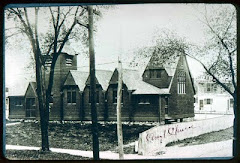“Work worthy of the vocation to which you’ve been called” (Ephesians 4:1). The Apostle Paul is urging us to take seriously the path God has planned out for us. We’re to seek His will and follow it with integrity.
At my Army retirement ceremony I stated how God was redirecting my calling from military to civilian ministry. Afterwards my Executive Officer, a fellow Lieutenant Colonel, came up to me and said he had no idea what I meant by a “calling”. I was stunned, especially since this Field Grade officer was immensely dedicated to the Army.
Many people lack a sense of calling. Certain few professions are considered callings, like teaching, the pastorate, and healthcare…but what does that mean with regard to other lines of work? If we’re not in one of the “called” professions are we free to pursue whatever captures our interest? Does it matter what we do? Some are relieved that they don’t feel called. But no one is exempt in God’s providence.
One reason some people feel a lack of job satisfaction is due to a lack of calling. Peter Kreeft observes, “If you do not believe in what you do, you cannot love it.” “It’s just a job,” and Paul’s admonition doesn’t apply…so they think.
In
The How of Happiness, Sonja Lyubomirsky tells of two hospital cleaning crews--one with a high sense of calling, and one without. The workers who saw their labor as “just a job” disliked cleaning, felt it was a low-level, demeaning job, and thus only performed the minimum required work. The workers who felt their work was a calling believed they were bettering the lives of patients, visitors, and staff. They enjoyed cleaning, did more than was required, interacted with people, and saw themselves as having an impact on wellness as part of the healing environment.
A good friend of mine called himself an “ordained plumber.” He got it right! It matters what we do, and God has a plan for our lives, for each of us. We need to seek His will and follow it. Charles Spurgeon urged, “There is no comfort more desirable than the confidence that you have aimed at doing your Lord’s will.”






